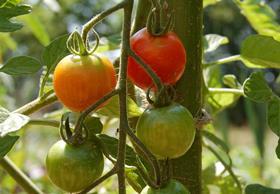
Scientists at the University of Oxford’s Department of Plant Sciences have discovered how ripening - including colour changes and softening - can be sped up or slowed down for tomatoes.
The Oxford team found that by modifying the expression of a single protein located in subcellular organelles called the plastids, they can exert some control over ripening.
In tomatoes, the ripening process involves changes in tiny “organelles” inside the fruit cells called plastids. It is these plastids that are responsible for giving colour to the fruit.
Despite their importance in delivering fruit colour, little was previously known about how plastids are involved in the ripening process.
These results, published inthe scientific journal Nature Plants, provide a theoretical basis for the modification or manipulation of the ripening of fleshy fruits such as tomatoes.
Co-author of the study, Paul Jarvis of Oxford’s Department of Plant Sciences, said the study revealed real potential for crop improvement.
“For example, it could be used to develop early or late fruiting varieties of fleshy fruits, or to improve the transportability or shelf-life of fruit by delaying ripening without compromising the quality of the ripe fruit,” said Jarvis.
“It’s fascinating that the amount of a single protein in these tiny subcellular structures called plastids can have such far-reaching consequences for fruit ripening in tomato.”



